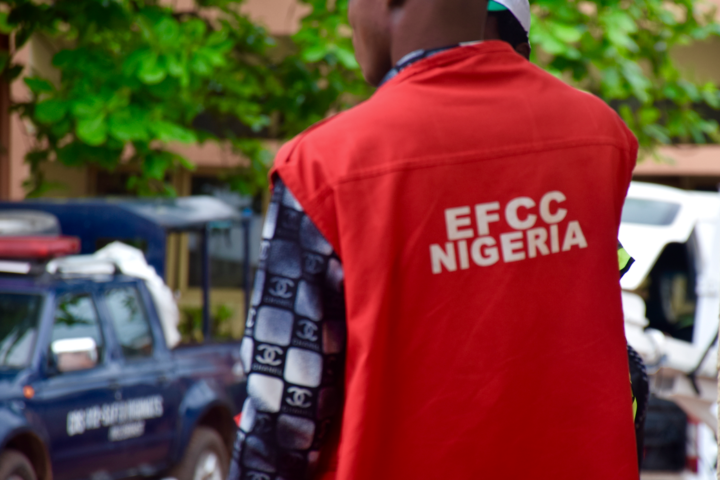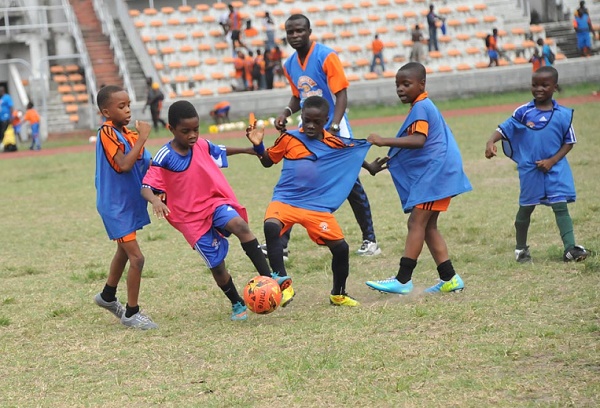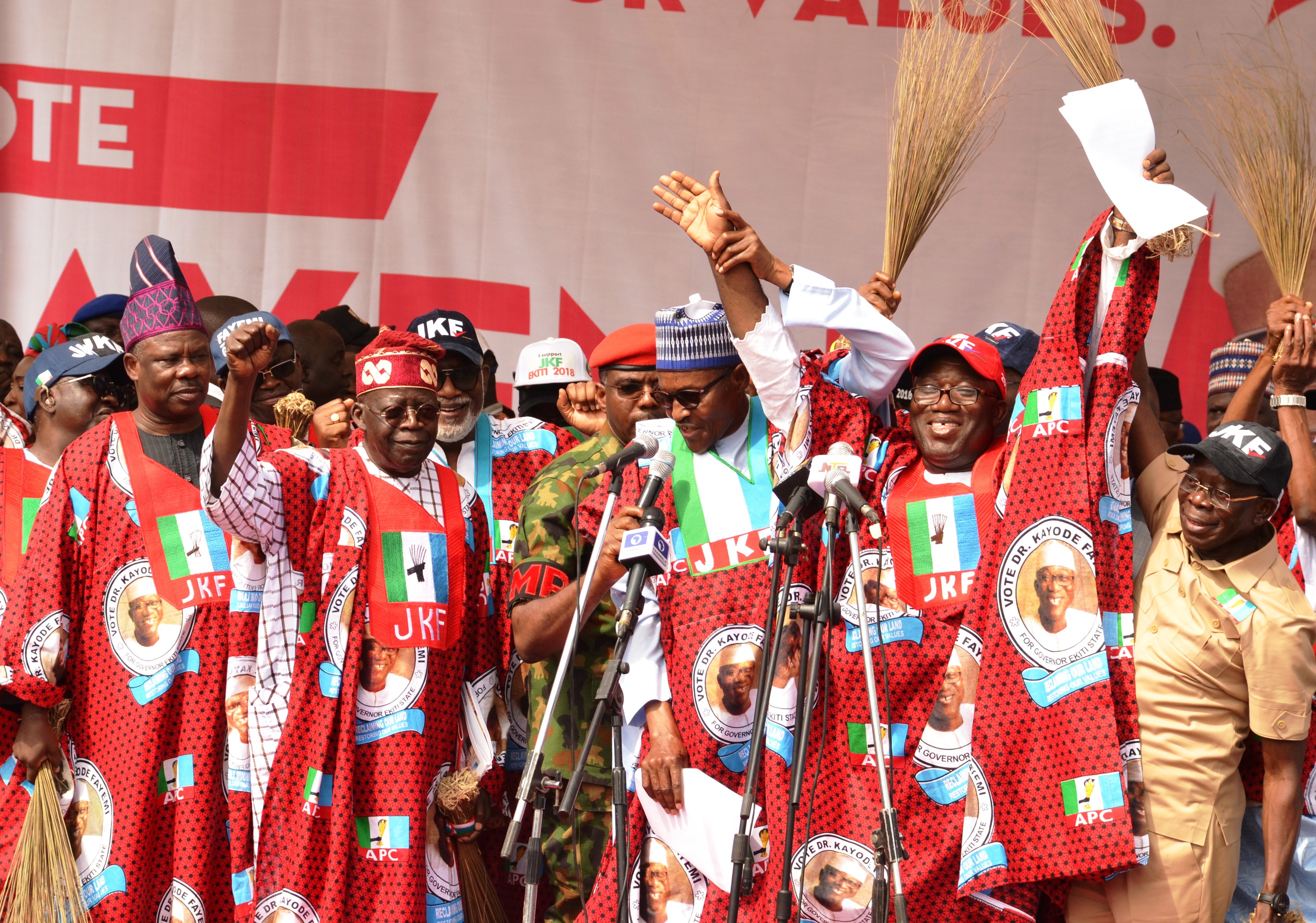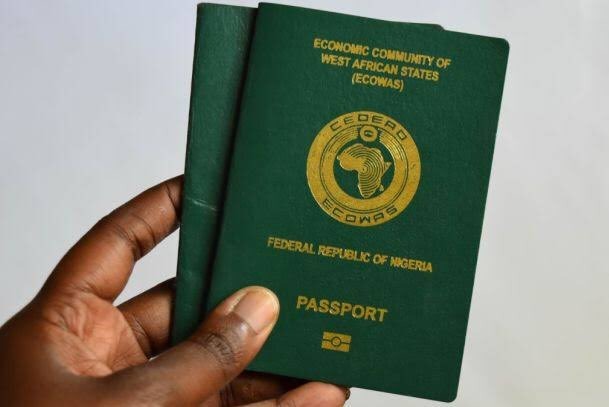When former President Olusegun Obasanjo, in 2003, first came up with the idea of establishing an anti-graft agency to be christened the Economic and Financial Crimes Commission (EFCC) not a few public affairs analysts and indeed, Nigerians heaved a sigh of relief on the ground that Nigeria is going to, for the first, since Buhari-Idiagbon (military) regime in 1984, an administration is going to attempt to tackle the menace of corruption that has eaten very deeply into our social fabric. Meanwhile, there were also some who expressed fear, as to the possibility of the agency becoming an instrument of political victimisation against opponents/enemies (real or imagined) of the ruling party.
From 2004 when the act establishing the commission, “the EFCC Act” was enacted and up until now, it has been variously accused of arresting embarrassingly, people whose opinions or positions on issues have appeared to be at variance with that of the presidency or anyone who knows anyone who is someone in the presidency. While the pioneer chairman Nuhu Ribadu was in charge, through the eras of Farida Waziri, Ibrahim Lamorde, Ibrahim Magu, up until now that Abdulrasheed Bawa is in charge, high profile people who are politically exposed have either been arrested or subjected to media trial and this has always come up shortly before or during electioneering period.
Under Ribadu, it was the then Bayelsa state governor, late Dipriye Alamieyeseigha, who many believed was being persecuted on account of his lack of support for Obasanjo’s 2nd term bid in 2003. He would later provide a very fertile ground for his arrest and prosecution by the EFCC after his money laundering case with the London Metropolitan Police, when he jumped bail in December 2005 from the United Kingdom by allegedly disguising himself as a woman, though he denied this claim. Iyabo Obasanjo-Bello is another public figure put to trial by the anti-graft agency sometime in 2008. But at no time has the commission been most accused of political witch-hunt like that of Ibrahim Magu.
A lot of lawmakers while Magu was in charge albeit in an acting capacity, prominent among which was the senate president at the time, Bukola Saraki, who even though was in the same party (APC) as President Muhammadu Buhari, continued to be constant on the list of those indicted and perpetually subjected to media trial on account of political differences. Others belong to the group of politicians who served in the cabinet of Goodluck Jonathan. Oliseh Methu, Raymond Dokpesi, Femi Fani-Kayode, Stella Oduah, the then-national security adviser, Sambo Dasuki (retired), among others. In fairness to the EFCC, there were high profile members of the ruling party too who were on trial and even got convicted. But some people would argue that those cases predated the emergence of the Buhari administration.
Advertisement
For instance, there are cases of corruption allegations against prominent people in the ruling party (APC) like the former governors of Plateau, Abia, and Taraba states, and sitting senators, Joshua Dariye, Orji Uzor Kalu, and Jolly Nyame respectively who were convicted and sentenced to prison terms. Kalu would later be released, following some judicial abracadabra – use of legal technicality, that nullified the trial which judgment brought about his being sentenced.
The record, however, needs to be set straight at this juncture that nobody is saying people, who have at different points in time, deemed to have abused the trust reposed in them by virtue of their being public office holders should not be held accountable for their stewardship especially those who are wont to mistake public coffers for their “hip pockets”; apart from following the due process of the law, it must be done in good faith without any political undertone.
There are instances when you think that the commission could have done better by varying the timing of such indictments and or arrests. A good example was in 2006 when Atiku Abubakar as an incumbent vice president was warming up to contest for the 2007 presidential race having loyally served his boss (Obasanjo) for seven good years, and again from the northern part of the country, he thought it was a no-brainer for him to emerge as the natural successor to a man who had at different fora sang his praises for what he described as his (Atiku’s) unparalleled loyalty. But no sooner had Atiku declared his ambition than he was met with allegations that he had corruptly used his office to enrich himself after having tried, but failed to get him “impeached” as the vice president. He was alleged by the president to have embezzled money meant the Petroleum Technology Development Fund (PTDF) even though it later emerged that the president could not completely wash his own hands clean of wrongdoing as far as the PTDF was concerned then. Atiku’s only saving grace was the obnoxious section 308 of the 1999 constitution which grants a president, his vice, a governor, and his deputy immunity from criminal prosecution. That is just one instance among many.
Advertisement
The latest on the numerous wrongly-timed indictments of politically exposed persons is that of an allegation of ₦2.9 billion fraud against the immediate past governor of Imo state and a senator who is currently representing Imo west senatorial district at the upper legislative chamber Owelle Rochas Okorocha. It is believed that his declaration for the 2023 presidential race does not sit well with some powerful forces within the party and by extension some interests in the villa, hence the unleashing of the commission as the proverbial attack dog on him. This latest faux pas is an unforced error, which makes more difficult, if not impossible, the task of defending the commission against those who see it as an instrument of harassment and intimidation, used to whip into line, any political dissident.
Strengthening that line of argument is the fact that Okorocha has been out of office for close to three years (since 2019) meaning that, the issue of section 308 of the Nigerian as an encumbrance does not arise for the EFCC yet, since then, nothing has ever been brought up against him by the EFCC. A sane person would say, maybe, they were yet to conclude investigation since 2019. But a keen follower of the commission’s modus operandi knows that they indict, arrest and detain first before they start an investigation; putting the cart before the horse. They would not come up with anything that is of evidential value against such an indicted person at the end of the day, thus rendering the whole show, a mere publicity stunt aimed at denting the political image of the victim of the “executive recklessness”.
This is majorly responsible for the abysmally poor indictment-conviction ratio, about 1:10. Meanwhile, in an ideal situation, an investigation would be concluded establishing watertight proof against the suspect before an arrest is effected, and prosecution begins. We all are witnesses to the case of FBI versus Abdulrahman Abbas, popularly known as Hushpuppi, in which DCP Abba Kyari, head of the inspector general of police’s intelligence response team at Nigeria Police Force headquarters in Abuja, was indicted. In a matter of weeks from now, judgment will be delivered, according to reports emanating from the US. But if it were to be Nigeria, the case could drag on for as long as two decades, because the prosecutor commences investigation after arrest, while a purported prosecution progresses. He would continually be seeking an adjournment to be able to conduct and conclude investigation amend charges day after day. This modus operandi has in so many instances made a mess of cases where the accused stood no chance of being acquitted. With this antecedent, one can safely say that the EFCC would in the coming days, commence investigation into Okorocha’s case. And if that is the case, how can the anti-graft body exculpate itself from the allegation of being political in the hands of the powers-that-be for witch-hunting?
One of the surest ways an anti-graft agency secures or loses its legitimacy is how it handles cases involving politically exposed persons. It has to be very circumspect, with the timing and manner of approach to its prosecutorial endeavours. If it chooses media trial over a trial in the law court, a conviction might be secured in the court of public opinion, but remember, it is not legally binding and therefore a waste of national time and resources, apart from constituting a source of unnecessary distraction in the pursuit of the case that is being bankrolled by taxpayers. It would reduce to total joke, whatever purpose for which such an agency was established. Accusing Okorocha, hours after he declared his ambition to run for the office of the president, is like someone who’s been accused of theft seen curdling a billy.
Advertisement
While nobody is preempting the EFCC’s indictment of Okorocha, it needs to get more serious and stop acting as if it is an arm of ruling parties, otherwise, it will continue to be regarded as “that (unregistered) political party”. It should not be supplying indicted persons alibis that have the capability of derailing the case, be it in the court of law or in the court of public opinion.
Meanwhile, a report by The Cable, on Tuesday, February 8, 2022, suggests that “a federal high court sitting in Port Harcourt, Rivers state, has ordered the Economic and Financial Crimes Commission (EFCC) to stop any planned action to prosecute Rochas Okorocha”. Of course we know, this as their (indicted public office holders’) strategy – get perpetual injunctions restraining the anti-graft agency from investigating, and possibly prosecuting them. To me, if there is no element of truth in the allegation, why seeking court injunction, restraining EFCC from prosecution? After all, “a clear conscience fears no accusation”, goes the saying.
Abubakar writes from Ilorin. He can be reached via 08051388285 or [email protected]
Advertisement
Views expressed by contributors are strictly personal and not of TheCable.
Add a comment







